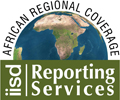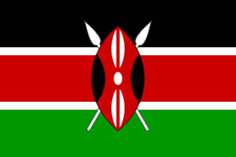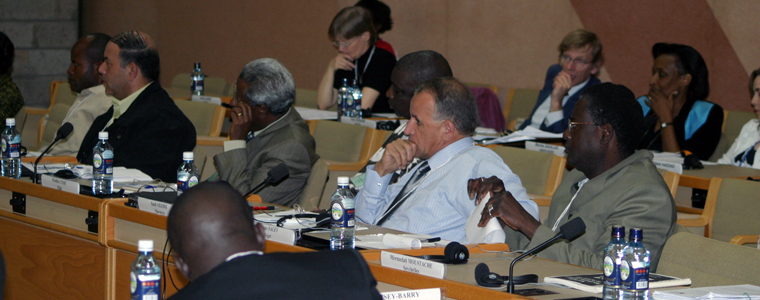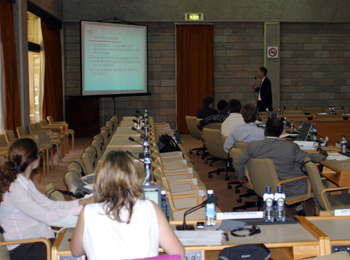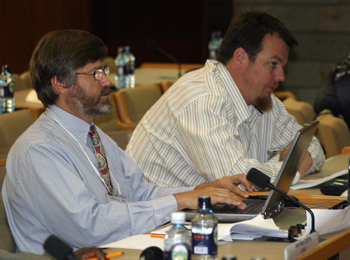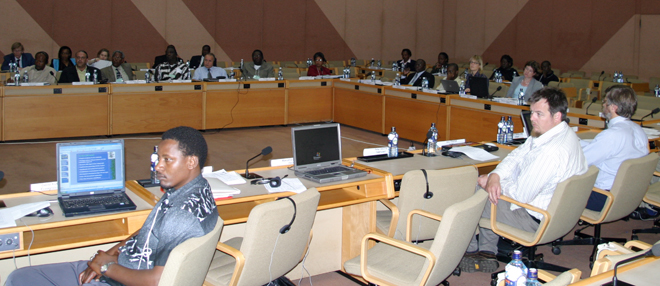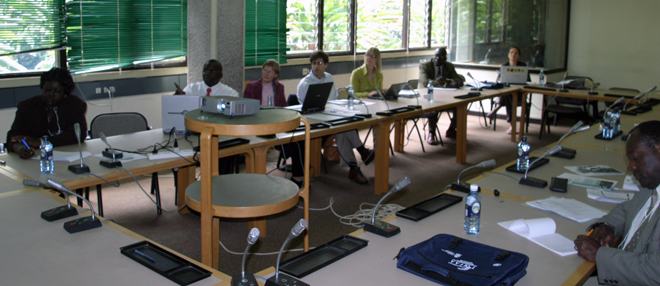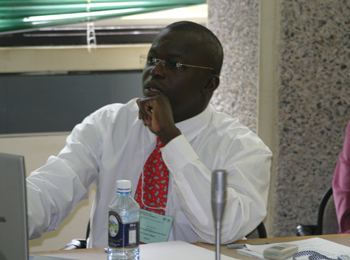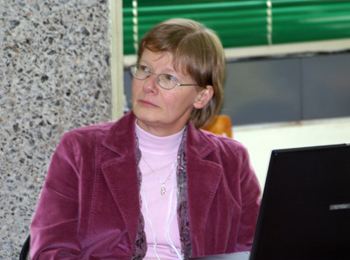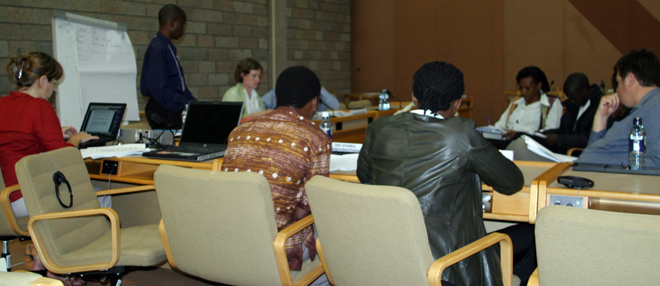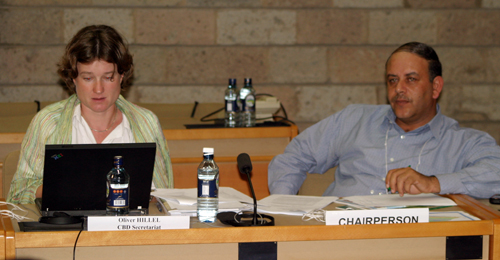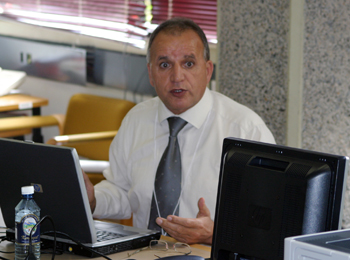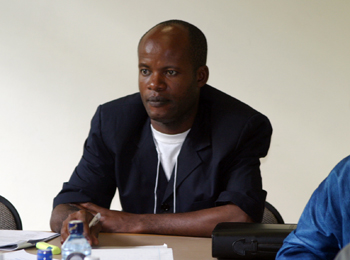 |
||||||
|
African Regional Workshop on Sustainable Use
12-15 December 2006 | Nairobi, Kenya |
||||||
|
||||||||||||||||||||||||||||||||||||||||||||||||||||||||||||||||||||||||||||||||||||||||||||||||||
The African Regional Workshop on Sustainable Use of Biological Diversity opened on Tuesday, 12 December 2006, in Nairobi, Kenya, organized by the Convention on Biological Diversity (CBD) and the UN Food and Agriculture Organization (FAO), and in partnership with the World Agroforestry Centre (ICRAF), the International Federation of Agricultural Producers (IFAP), Bioversity International, and the Tropical Soil Biology and Fertility Institute of the International Center for Tropical Agriculture (CIAT).
On Tuesday morning, participants agreed on organizational matters, and heard presentations from the CBD Secretariat and partner organizations, with the Secretariat highlighting the importance of examining the application of the Addis Ababa Principles and Guidelines on Sustainable Use of Biological Diversity (AAPGs) to agricultural biodiversity, and outlining the results of the two other regional workshops on the AAPGs: the Eastern European Workshop which had been held from 30 May – 2 June, 2005 in Moscow, the Russian Federation; and the Latin American and Caribbean Workshop, held from 13 – 16 September, 2005 in Buenos Aires, Argentina. In the afternoon, in a session chaired by Modibo Cissé, Ministry of the Environment,
On Wednesday morning, participants heard a presentation from Sally Bunning, FAO, on Decision V/5 (Agricultural biodiversity) and then convened throughout the day in three parallel informal working groups to review the AAPGs and their application to agrobiodiversity and establish guidelines for the agricultural sector grounded in the AAPGs.
WG-I, was chaired by Francis Ogwal, National Environment Management Authority, Uganda, with Evelyn Mathias, FAO, and Susan Odhuo, Indigenous Information Network, Kenya, acting as rapporteurs. Participants heard three presentations and carried out discussions on how to apply AAPGs to the agriculture sector, taking into account experts’ experience in their own countries. The group included participants from
WG-II, chaired by Rueben Oyoo Mosi, University of Nairobi, Kenya, with Dagmar Mithöfer, African Insect Science for Food and Health (ICIPE) and Kudzai Kusena, National Gene Bank, Zimbabwe, as rapporteurs, included participants from Kenya, Egypt, Zimbabwe, South Africa and the Seychelles. Participants shared national experiences and challenges in agrobiodiversity conservation, brainstormed possible solutions and proposed operational guidelines, additions and revisions to the AAPGs.
WG-III was chaired by Modibo Cissé, Ministry of the Environment,
On Thursday morning, participants met in plenary, heard feedback from the working groups, and presentations on ecosystem services assessment. Olivier Hillel, CBD Secretariat, outlined methodologies for carrying out ecosystem evaluation, including market price, productivity, hedonic pricing and travel cost methods. Jeroen Huising, Tropical Soil and Fertility Institute (TSBF), presented on a programme of work (POW) on below-ground biodiversity and related ecosystem services, on assessment and adaptive management of ecosystem services. Brent Swallow, World Agroforestry Centre (ICRAF), outlined several factors including: reduction of native land pressure and improved fallows; intrinsic value of agricultural forestry systems; the economic potential of commercialization and deliberate management of invasive tree species.
On Thursday afternoon, participants reconvened in WGs to finalize review of the AAPGs and then reformed in three drafting groups to work on the report of the meeting presenting the outputs and recommendations of the Workshop.
On Friday morning, plenary heard a presentation on financial costs and benefits associated with the conservation and sustainable use of biological diversity; final reports from the WGs on the application of the AAPGs to agricultural biodiversity; and statements from representatives of local and indigenous communities and international organizations. At the close of the meeting, the participants had adopted the Nairobi Statement on Sustainable Use of Agricultural Diversity, which, inter alia, invites FAO and CBD Secretariats to formulate a draft report of the Workshop results, and consult with countries, regions and partners on a draft document summarizing the results from the three regional workshops for the Joint FAO/CBD Global Technical meeting. In the Statement, participants also agreed to the definitions and scope for agricultural biodiversity as included in the background document “CBD/FAO proposal for definition and scope of agricultural biodiversity,” which will be attached as an Annex to the Workshop report.
|
Relevant Links
|
|||
|
|
|
|
| Back to IISD RS African Regional Coverage home page | Back to IISD RS "Linkages" home | Visit IISDnet | Send e-mail to ENB |
© 2006, IISD. All rights reserved. |
||


